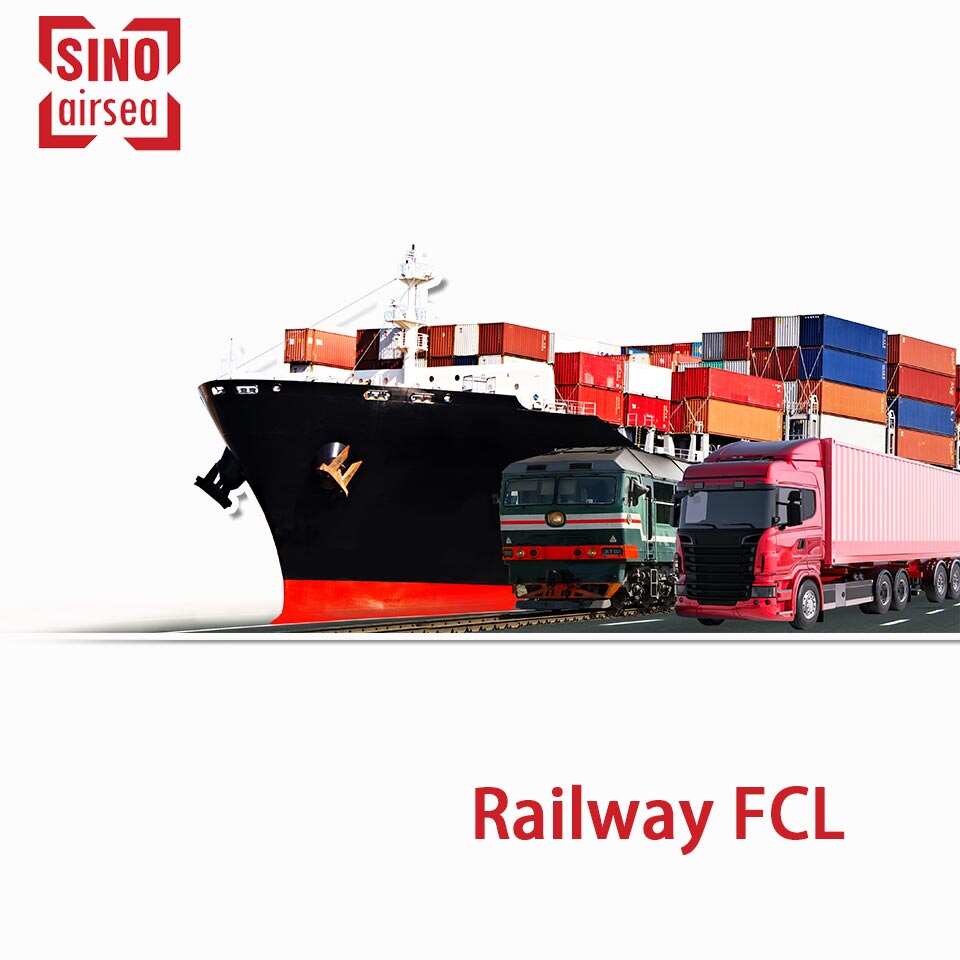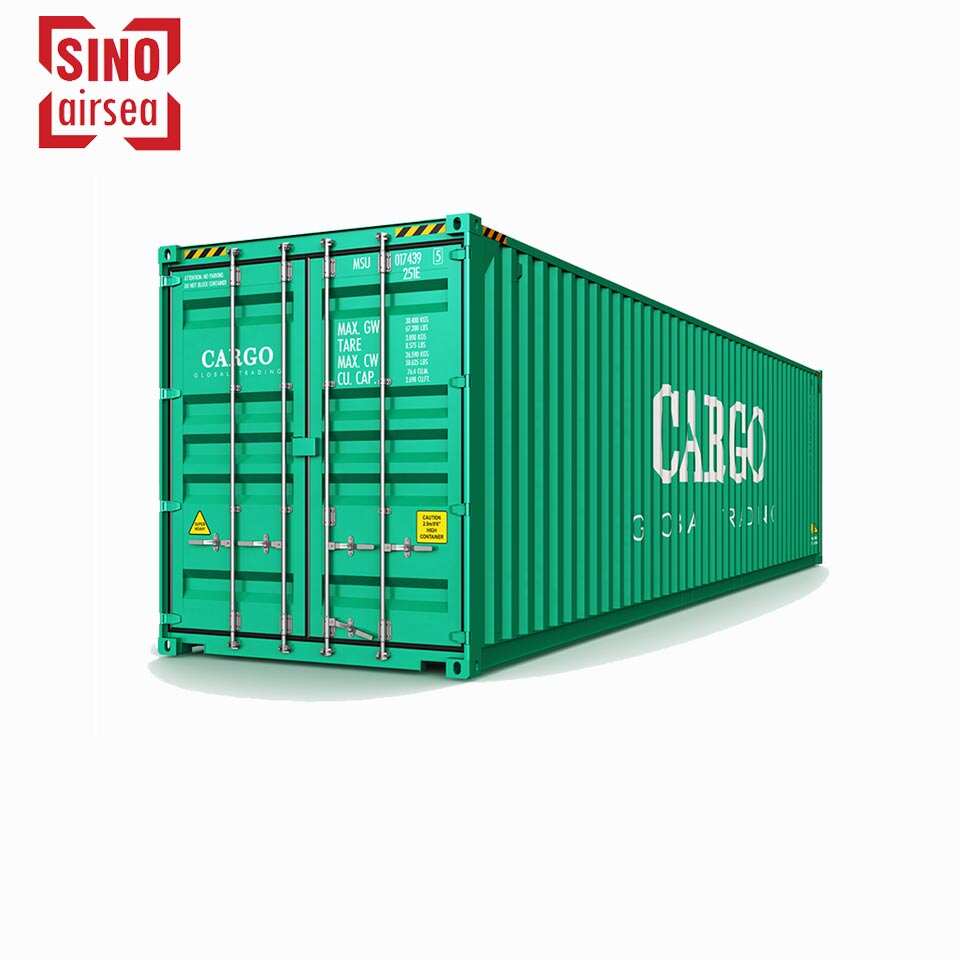FCL Railway Transportation: The Key to Efficient and Cost-Effective Shipping
In the world of logistics and supply chain management, FCL railway transportation stands out as a critical component for businesses looking to streamline their shipping processes. As companies continue to seek more efficient and cost-effective solutions for transporting goods, understanding the benefits and nuances of FCL railway transportation becomes increasingly important. In this comprehensive guide, we will explore the advantages of FCL railway transportation, its role in global trade, and how it compares to other shipping methods.
What is FCL Railway Transportation?
Understanding FCL (Full Container Load) Railway Transportation
FCL railway transportation refers to the shipping of goods in full container loads via rail. This method involves using an entire container for a single shipment, which can be transported across long distances by train. Unlike Less Than Container Load (LCL) shipments, which combine cargo from multiple shippers into one container, the transportation ensures that the entire container is dedicated to a single consignee.
This approach offers several advantages, including reduced risk of damage, fewer handling operations, and more efficient use of space. By utilizing a full container for a single shipment, businesses can benefit from economies of scale and enjoy a more streamlined shipping process.
The Role of FCL Railway Shipping Manufacturers
An FCL railway shipping manufacturer plays a crucial role in the logistics chain by providing the necessary equipment and infrastructure for efficient rail transportation. These manufacturers produce a range of containers and rail transport solutions designed to meet the needs of various industries. Their expertise ensures that containers are built to withstand the rigors of long-distance rail travel and adhere to international shipping standards.
Advantages of FCL Railway Transportation
Cost Efficiency
One of the primary benefits is its cost efficiency. By shipping a full container load, businesses can often negotiate better rates compared to less-than-container-load shipments. The cost per unit decreases as the volume of goods increases, making FCL railway transportation a cost-effective option for large shipments.
Additionally, the economies of scale associated with FCL shipments help reduce overall transportation costs. Businesses can take advantage of lower rates per ton of cargo and minimize the costs associated with handling and transferring goods between different modes of transport.
Reduced Risk of Damage
When using the transportation, the risk of damage to goods is significantly reduced. Since the entire container is dedicated to a single shipment, there is less handling and fewer opportunities for goods to be misplaced or damaged. The container remains sealed until it reaches its destination, ensuring that the cargo is protected from environmental factors and potential tampering.
Faster Transit Times
FCL railway transportation often results in faster transit times compared to other methods of shipping. With a full container load, there are fewer stops and transfers along the way, allowing for a more direct route from origin to destination. This efficiency can be particularly advantageous for businesses with tight delivery schedules and time-sensitive shipments.
Streamlined Customs Processes
Shipping goods in full containers simplifies the customs process. With the transportation, there is a single customs declaration for the entire container, reducing the administrative burden and potential delays associated with processing multiple smaller shipments. This streamlined approach helps expedite the clearance process and ensures that goods move more quickly through customs.
Comparing FCL Railway Transportation to Other Shipping Methods
FCL Railway Transportation vs. LCL Shipping
FCL railway transportation and Less Than Container Load (LCL) shipping are two distinct methods of shipping goods. While FCL involves the use of a full container for a single shipment, LCL shipments combine cargo from multiple shippers into one container.
The key differences between FCL and LCL shipping include:
- Cost: FCL is generally more cost-effective for larger shipments, while LCL may be more economical for smaller loads.
- Handling: FCL shipments involve fewer handling operations, reducing the risk of damage and delays. LCL shipments require more handling and consolidation.
- Transit Time: FCL shipments typically have faster transit times due to fewer transfers and a more direct route.
FCL Railway Transportation vs. Air Freight
Air freight is known for its speed and efficiency, making it a popular choice for time-sensitive shipments. However, it is often more expensive than rail transportation.
Key differences include:
- Cost: Air freight is generally more expensive than FCL railway transportation, making rail a more cost-effective option for larger shipments.
- Speed: Air freight offers faster transit times, but FCL railway transportation provides a more economical solution for shipments that do not require immediate delivery.
- Capacity: Rail transport can handle larger volumes of cargo compared to air freight, which has limitations on size and weight.
FCL Railway Transportation vs. Sea Freight
Sea freight is a traditional method of shipping goods over long distances, particularly for international trade.
Key differences include:
- Transit Time: Sea freight typically has longer transit times compared to rail, making FCL railway transportation a faster option for certain routes.
- Cost: Sea freight can be more cost-effective for very large shipments, but FCL railway transportation offers competitive pricing for land-based transport.
- Environmental Impact: Rail transport is often considered more environmentally friendly compared to sea freight, which has a higher carbon footprint.
The Future of FCL Railway Transportation
Technological Advancements
The future is likely to be shaped by technological advancements. Innovations such as automated container handling systems, real-time tracking, and advanced logistics software are expected to enhance the efficiency and reliability of rail transport. These technologies will improve the overall shipping experience, making it easier for businesses to manage their logistics operations.
Sustainability and Environmental Impact
As sustainability becomes a growing concern, the rail industry is focusing on reducing its environmental impact. The transportation is inherently more eco-friendly compared to other methods, such as air freight, due to its lower carbon emissions. The industry is also exploring ways to further improve its sustainability efforts through the use of alternative fuels and energy-efficient technologies.
Global Trade and Market Expansion
The rise of global trade and market expansion is driving demand for efficient and reliable shipping solutions. The transportation is well-positioned to meet this demand, offering a cost-effective and sustainable option for businesses looking to transport goods across borders. As international trade continues to grow, the role of FCL railway transportation will become increasingly important in the global logistics network.
Choosing the Right FCL Railway Transportation Partner
Expertise and Experience
When selecting a partner for FCL railway transportation, it’s crucial to choose a company with expertise and experience in the industry. Look for providers with a proven track record of delivering high-quality services and a deep understanding of the complexities of rail logistics.
Quality of Service
The quality of service offered by your transportation partner can significantly impact the success of your shipping operations. Ensure that the provider offers reliable scheduling, effective communication, and responsive customer support to address any issues that may arise.
Competitive Pricing
While cost is an important consideration, it’s essential to balance pricing with the quality of service. A reputable provider will offer competitive pricing without compromising on service standards. Evaluate quotes and compare options to find the best value for your shipping needs.
Comprehensive Solutions
Look for a partner that offers comprehensive solutions, including additional services such as warehousing, customs brokerage, and supply chain management. A full-service provider can streamline your logistics operations and provide a one-stop solution for all your transportation needs.
Conclusion: Embrace the Benefits of FCL Railway Transportation
In conclusion, FCL railway transportation offers numerous advantages for businesses seeking an efficient, cost-effective, and reliable shipping solution. Its benefits include cost savings, reduced risk of damage, faster transit times, and streamlined customs processes. As a versatile and sustainable option, the transportation is well-suited to meet the demands of modern logistics and global trade.
By understanding the advantages and choosing the right partner, businesses can optimize their shipping operations and enjoy the numerous benefits of this essential logistics solution. Whether you’re shipping large volumes of goods or seeking a more efficient way to manage your supply chain, FCL railway transportation is the key to success in today’s dynamic market.



